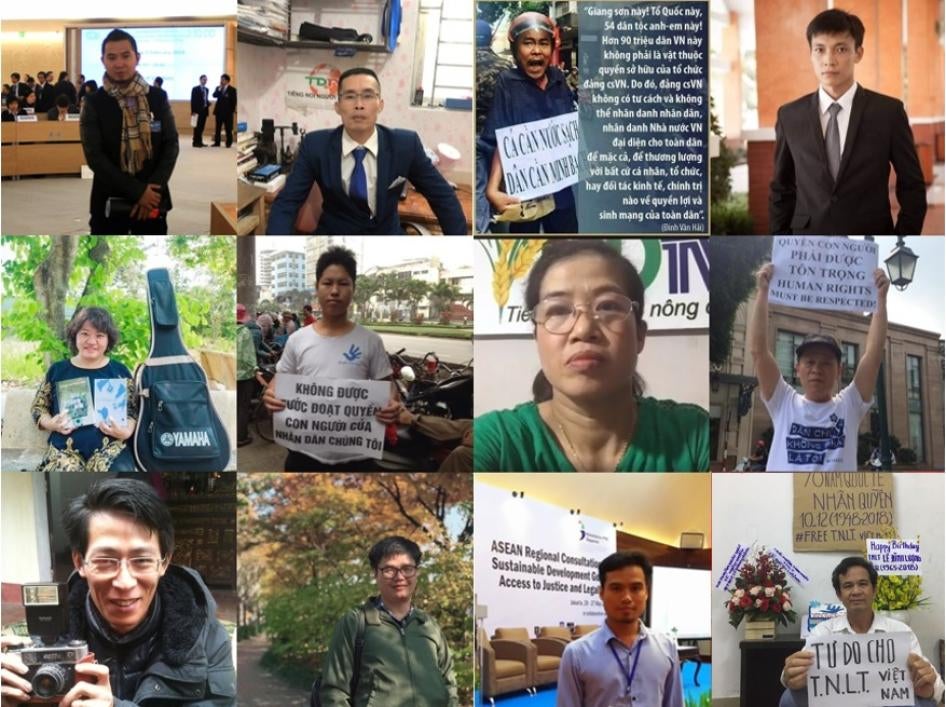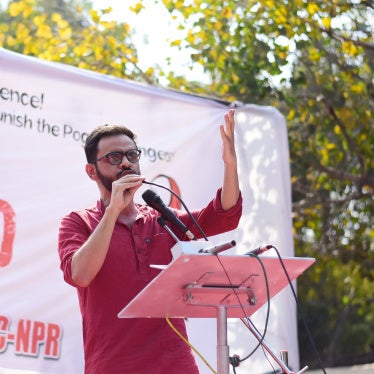Most Australians know Vietnam for its good food, picturesque beaches, and horrific wartime history. But many may not be aware that the Southeast Asian nation also has the notorious distinction of having more than 150 political prisoners, held for peaceful acts of free expression. One rarely hears about these political prisoners because the Vietnamese government is trying hard to project itself as a modern, reliable trade and security partner for the West.
These political prisoners include a land activist, Truong Van Dung; an entrepreneur, Tran Huynh Duy Thuc; and a journalist, Pham Doan Trang; all sentenced to long prison terms on frivolous charges.
On July 11, the Vietnamese authorities released a retired Australian baker and pro-democracy activist, Chau Van Kham, after more than four years of arbitrary detention. A court convicted Chau of “terrorism” in November 2019 and sentenced him to 12 years in prison after a summary trial that raised serious due process concerns. The case was based on his affiliation and activities with an opposition political party, Viet Tan, which operates openly and lawfully in many countries including Australia, but which Hanoi arbitrarily labels “terrorist.”
Two Vietnamese activists, Nguyen Van Vien and Tran Van Quyen, were put on trial with him and were sentenced to 11 and 10 years respectively. They remain behind bars.
Chau’s early release on humanitarian grounds is great news for Chau and his family. It’s the result of hard work and advocacy at the most senior levels of the Australian government to secure his release.
But his case is a stark reminder that many more human rights defenders, environmental activists, and journalists arbitrarily detained in Vietnam don’t have foreign citizenship, so they rarely are able to benefit from strong and sustained pressure from foreign governments for their release.
Since July 11, the police have arrested two more activists for Facebook posts critical of the government.
On July 13, a Vietnamese court rejected an appeal from Truong Van Dung, the land activist. He will need to serve out his six-year sentence for “propaganda against the state.” Even before this sentence, Truong Van Dung had experienced years of government harassment and intimidation, including police interrogations, house arrest, a travel ban, and physical assaults.
Meanwhile, Tran Huynh Duy Thuc, once a leading campaigner for information technology and digital communications in Vietnam, is serving a 16-year prison sentence. He was convicted for calling for democracy and a multiparty political system.
A well-known journalist, Pham Doan Trang, is serving a nine-year prison sentence. She dared to write articles and books that the Communist Party of Vietnam disapproved of. Her writing touched a range of issues including lesbian, gay, bisexual and transgender rights; women’s rights; environmental issues; the territorial conflict between Vietnam and China; and legal reform.
In 2022, the Vietnamese government stepped up the repression of environmental activists. The courts convicted a journalist, Mai Phan Loi; an environmental lawyer, Dang Dinh Bach; and an environmental defender, Nguy Thi Khanh, on politically motivated charges of alleged tax evasion. It didn’t matter that Nguy Thi Khanh was the 2018 winner of the internationally prestigious Goldman Environmental Prize, honoring grassroots environmental activists. In May, following an international outcry, Nguy Thi Khanh was released five months before the end of her prison sentence.
But the Vietnamese authorities quickly arrested another prominent environmental campaigner, Hoang Thi Minh Hong, also on wrongful tax evasion charges.
Democratic governments are on a charm offensive right now with Vietnam. They regard it as an attractive economic market, and an alternative place for Western companies to place factories given the desire to reduce their reliance on China. Vietnam is becoming a significant player in the geopolitical strategic competition with China. And so democratic governments that condemn rights violations in China, refrain from criticizing Hanoi for similar violations to keep the authorities on-side against Beijing.
Democratic governments should not let Vietnam off the hook. Doing so does a disservice to the Vietnamese people who are suffering because their government does not tolerate their criticism. As Pham Doan Trang bravely said when she was sentenced, “the Socialist Republic of Vietnam … chooses to respond in a more vile, foolish, and heinous manner, imprisoning its citizens simply because they write works or respond to interviews with foreign journalists … The longer the prison sentence, the more demonstrable the authoritarian, undemocratic, and antidemocratic nature of the Socialist Republic of Vietnam.”
In their quest for closer ties, democratic governments like Australia, European Union member countries, and the United States should not ignore Vietnam’s political prisoners. Doing so only invites the Vietnamese government to continue its crackdown on free speech and criticism that all governments should be able to tolerate.










